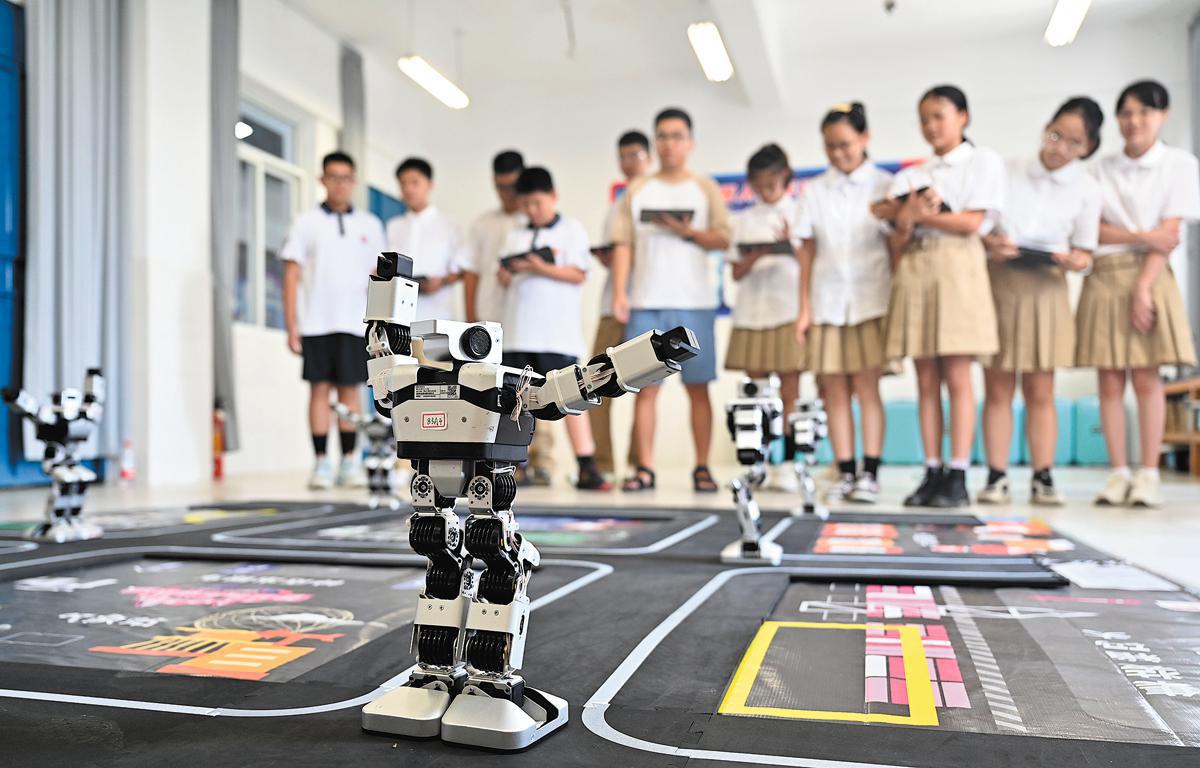China to promote joint digital education


China will work with other countries to promote the digital transformation of education through technological innovation, Vice-Premier Ding Xuexiang said on Wednesday.
Ding made the remarks at the opening ceremony of the 2025 World Digital Education Conference, which began in Wuhan, capital of Hubei province.
Ding said that China will boost joint efforts to develop generic technologies, as well as more services and products, that meet diverse learning needs to deepen international cooperation in digital education.
"We should jointly advance the inclusive sharing of digital education achievements by supporting developing countries in their digital education efforts and helping bridge development gaps," he said.
Ding also called for global action to strengthen ethical and security safeguards in digital education, including oversight of intelligent education tools and services.
In a keynote speech at the event, Education Minister Huai Jinpeng said artificial intelligence is reshaping the global education landscape, and China will pursue a human-centered and ethically guided approach to education reform.
"We must never lose sight of the fundamental purpose of education," Huai said, urging a balance between innovation and preserving core educational values.
Education, he said, should focus on cultivating young people's abilities in observation, independent thinking, rational judgment, innovation and complex problem-solving.
Huai emphasized application-driven reform, with China's National Smart Education platform playing a central role.
"AI, big data and virtual simulation should be integrated into all processes of teaching and learning," he said.
The minister also highlighted the need for ethical norms to address potential risks, including data privacy, misinformation and algorithmic bias.
Miao Fengchun, chief of the unit for technology and artificial intelligence in education at UNESCO Headquarters, said China has issued nearly 10 laws and regulations related to AI governance, placing it among the most advanced countries in the field.
"Looking ahead, I hope China becomes the first country in the world to officially introduce a policy or regulation that establishes a formal system for the certification and evaluation of AI systems used in primary and secondary school classrooms," Miao said.
Stephen Morgan, parliamentary undersecretary of state at the United Kingdom's Department for Education, said global cooperation is key to ensuring the safe and effective use of AI in education.
"By working together, we can make sure all young people get the most out of their education and the skills that they need in the digital future," Morgan said.
zhaoyimeng@chinadaily.com.cn
- Macao thrives as collaboration deepens
- Beijing reiterates strong opposition to US arms sales to Taiwan
- Attack in Taipei injures 9, including 4 in critical condition: local media
- Ministry to launch month-long program aimed at promoting youth employment
- National health body asks consumers to read nutritional information on food labels
- China's top cyberspace regulator launches drive against capital market misinformation




































